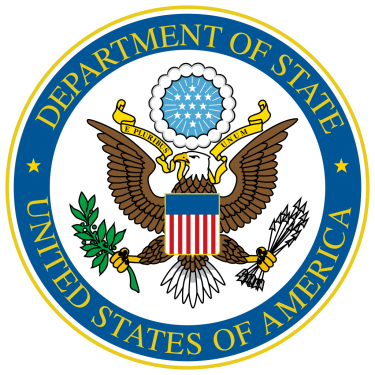The Process Involved in Declaring Letters Rogatory: A Step-by-Step Overview
The Process Involved in Declaring Letters Rogatory: A Step-by-Step Overview
Blog Article
Letters Rogatory Explained: Facilitating Legal Participation In Between Countries

Definition of Letters Rogatory
Letters rogatory are official demands made by a court in one jurisdiction to a court in an additional jurisdiction, seeking aid in obtaining evidence or testament for a legal action. This step-by-step mechanism is crucial in the context of international legislation, where lawful systems may differ, and cross-border participation is required. Letters rogatory promote the gathering of information that might be crucial for adjudicating situations, particularly in circumstances entailing complex multinational problems.
Commonly, these requests occur in civil, criminal, or management issues where an event calls for evidence that lies outside the jurisdiction of the requesting court. The letters function as a way to make sure that the concepts of due process are supported, allowing courts to access proof that may or else continue to be inaccessible due to legal or geographic barriers.
The use of letters rogatory is regulated by worldwide treaties, bilateral contracts, or domestic legislations, which define the procedures and responsibilities of the courts included. It is essential to note that the execution of such requests is not assured; they depend on the regulations and techniques of the territory obtaining the letter. Hence, letters rogatory are a crucial device for cultivating lawful participation and making certain justice throughout boundaries.
The Refine of Issuing Letters Rogatory
Issuing letters rogatory includes a structured process that ensures conformity with both worldwide and residential legal standards. The requesting party, commonly a court or lawful authority, drafts an official request detailing the nature of the help sought, the proof or info needed, and the lawful basis for the request. This record needs to be precise to facilitate understanding by the foreign jurisdiction.

The next step involves transmitting the letters rogatory to the marked international authority. This is usually done via polite networks or worldwide legal assistance frameworks, ensuring that the demand is gotten and acknowledged by the foreign court. The foreign court after that refines the request according to its own lawful treatments, eventually reacting to the asking for celebration with the in-demand info or evidence, hence promoting global lawful collaboration.
Significance in International Law
The value of letters rogatory in international legislation can not be overstated, as they function as a crucial device for judicial teamwork across boundaries. These formal demands for help in legal issues enable courts in one territory to inquire, proof, or the presence of witnesses from another territory, therefore facilitating the management of justice in global situations.
Letters rogatory are particularly crucial in the context of globalization, where legal disagreements typically span numerous countries. They allow the collection of evidence that may or else be unattainable, ensuring that lawful process are notified and reasonable. By cultivating partnership in between judicial systems, letters rogatory help maintain the rule of legislation and advertise mutual regard amongst nations.
Additionally, using letters rogatory demonstrates a dedication to global norms and principles of participation, reflecting the interconnected nature of contemporary lawful techniques. It illustrates the value of sticking to established procedures and treaties, such as the Hague Convention, which provides a framework for these requests - Letters rogatory. Ultimately, letters rogatory enhance the efficacy of legal procedures, making certain that justice is not impeded by geographical borders
Challenges and Limitations
In spite of their importance, letters rogatory face a number of obstacles and limitations that can restrain their efficiency. One main concern is the differing lawful structures and treatments throughout territories, which can lead to misunderstandings and delays in the execution of requests. Different countries may have distinct demands for the credibility of letters rogatory, complicating the process even more.
In addition, the typically protracted nature of global lawful teamwork can prevent prompt accessibility to proof or witnesses. This hold-up might negatively affect continuous examinations or legal procedures, specifically in instances calling for immediate activity. Additionally, the lack of resources and training in some jurisdictions can cause not enough handling of demands, causing inadequate or insufficient feedbacks.
Countries with less official legal systems may battle to comply with the procedural roughness anticipated in letters rogatory. These challenges require continual dialogue and reform to improve the efficiency of letters rogatory in legal collaboration.
Instance Studies and Examples

Conversely, difficulties can emerge, as seen in a case involving a European nation seeking proof in a recurring criminal matter read from a non-EU nation - Letters rogatory. The process was postponed due to bureaucratic obstacles and varying lawful standards, eventually preventing the investigation
These examples highlight that while letters rogatory can facilitate worldwide participation and speed up legal procedures, they additionally highlight the need for clear communication and understanding of legal structures in between nations. Such study highlight the value of refining this device to boost efficiency and effectiveness in worldwide lawful issues.
Verdict
In recap, letters rogatory work as a vital mechanism for helping with legal teamwork in between nations, making sure the collection of proof and testament throughout territories. Their value in global regulation can not be overemphasized, as they advertise due procedure and improve the effectiveness of cross-border lawful procedures. Obstacles such as varying lawful frameworks and political tensions may hinder their effectiveness. Proceeded initiatives to improve the procedure and enhance are essential for cultivating more powerful worldwide judicial cooperation.
Letters rogatory are official requests made by a court in one territory to a court in one more territory, seeking assistance in getting evidence or testament for a legal case. The requesting event, commonly a court or legal authority, composes a formal demand detailing the nature of the aid sought, the proof or info required, and the legal basis for the demand. The foreign court then refines the request according to its very own legal treatments, ultimately responding to the asking for party with the desired information or proof, thus assisting in international legal participation.
Furthermore, the usage of letters rogatory demonstrates a use this link commitment to global norms and concepts of cooperation, reflecting the interconnected nature of modern-day legal practices.Global lawful cooperation with letters rogatory is not without its real-world effects, as illustrated by different situation researches that highlight both difficulties and successes.
Report this page